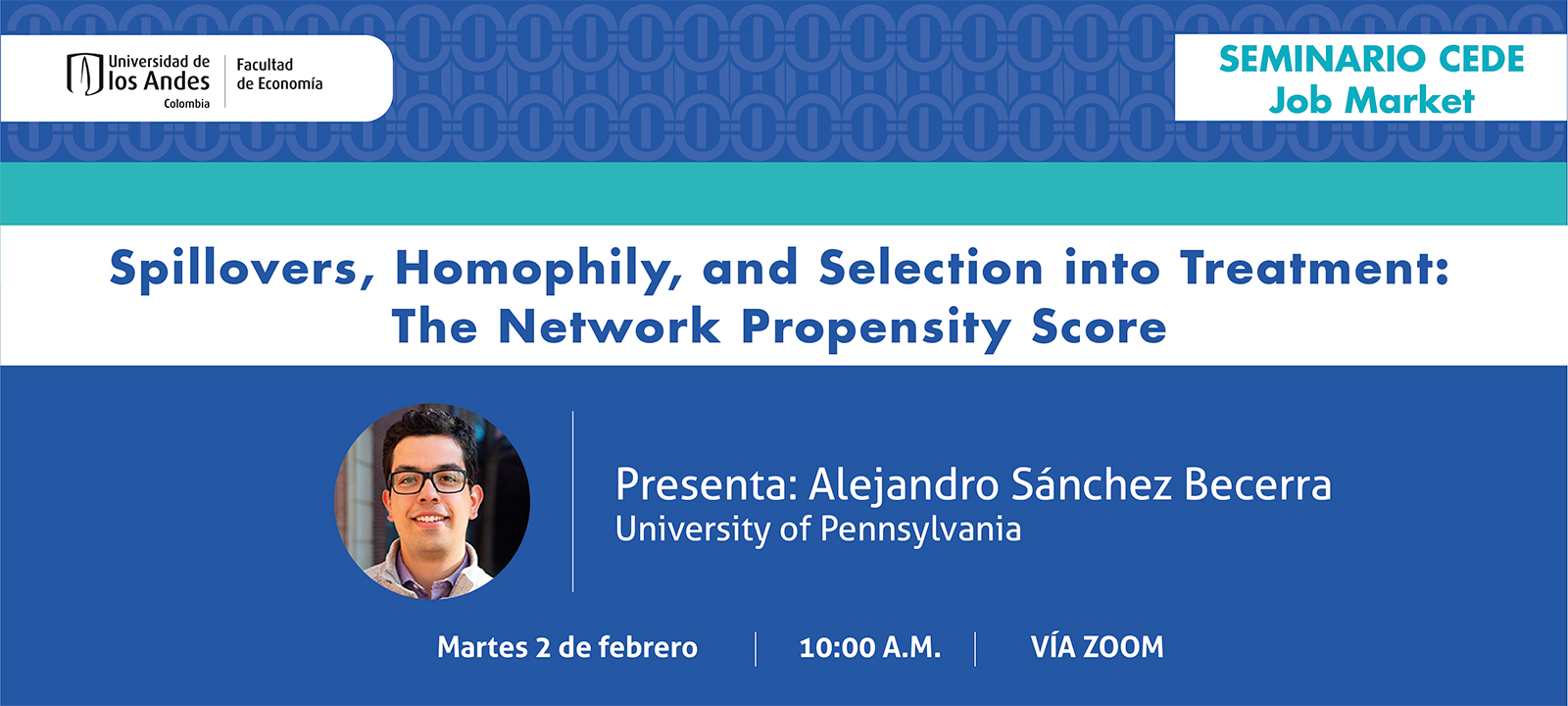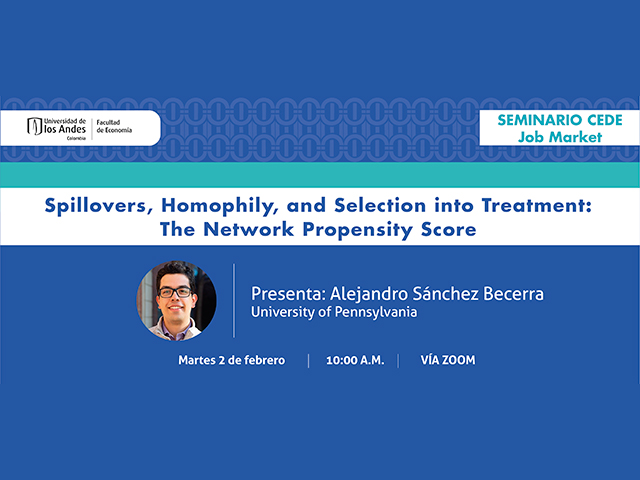Seminario CEDE - Alejandro Sánchez Becerra

Propensity score matching is often used to estimate treatment effects when there is selection on observables; however, it fails to identify causal effects when one person's treatment affects another's outcome. This phenomenon is known as spillovers. I propose a novel network propensity score matching approach that identifies both the average treatment effects and the average spillover effects between individuals. My approach is grounded on an endogenous model of network formation with spillovers on the outcome. This methodology can be used to identify causal effects for individuals with similar observables, analogous to the propensity score. I then propose estimators that are consistent and asymptotically normal for settings with multiple networks. I apply my methodology to two empirical examples. First, I study the effects of an intervention on political participation in Uganda where I find evidence of spillovers on non-participants. Second, I evaluate a microfinance adoption intervention in India, and find large treatment effects but limited spillovers effects. In some extensions of the method, I show how to conduct robustness checks and how to interpret the network propensity score in stratified multi-stage experiments.
Presented at: Econometric Society World Congress 2020, Young Economists Symposium 2020, Warwick Ph.D. Conference 2019.

